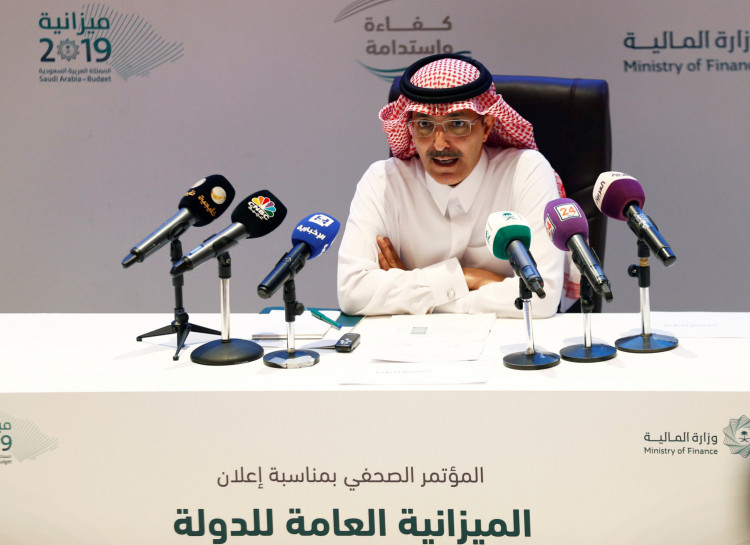Saudi Arabia announced Wednesday its plan to increase state spending by more than 7 percent, amounting to as much as $295 billion despite economic slowdown resulting from weak oil prices.
Of most particularly startling for outside observers was the kingdom's decision to continue giving monthly allowances of $266 to civil servants, military personnel and pensioners. The cost-of-living allowance is estimated to be at about $13 billion. The kingdom will also boost student allocations by 10 percent for the next fiscal year, CNBC reported.
The kingdom's economy decreased in 2017 as private businesses struggled with high electricity costs, fuel prices, and 5 percent value-added tax. There has also been widespread unemployment in the country, the worst level Saudi Arabia has experienced in 10 years.
If the kingdom decides to stop handing out the cost-of-living allowances, the country's budget deficit will decrease to less than 2 percent of the gross domestic product next year, CNBC noted, citing estimates from the International Monetary Fund. Since the kingdom chose to pursue these royal allowances, however, the country's budget deficit for 2019 will balloon to 4.2 percent of its GDP.
Analysts believed that Saudi's King Salman chose to continue giving handouts to solicit strong support for Crown Prince Mohammed bin Salman who was suspected to be behind the killing of journalist Jamal Khashoggi.
On Monday, Saudi Arabia's Ministry of Foreign Affairs rejected a conclusion presented by the United States Senate saying that the Crown Prince had a hand in the murder of Khashoggi who was on a self-imposed exile in Washington.
The statement from the kingdom's foreign affairs was issued after the U.S. called for Saudi Arabia to impose an appropriate punishment for all people involved with Khashoggi's death, hinting that the Crown Prince shall not be excluded.
Meanwhile, it seemed that Saudi Arabia may be planning to recover the budget deficit incurred from the cost-of-living allowance from fees on foreign workers. During its announcement of its budget for the fiscal year 2019, Saudi officials mentioned about reconsidering the $80 to $107 monthly fees it asked from businesses for each foreign worker their hire. Reuters reported the government has plans to increase such fees by next year.
When this fee was first rolled out, the government said it was intended to limit the hiring of foreign workers and promote employment of local citizens. The policy had since resulted in more than 900,000 expatriates leaving the country and businesses complaining of mounting operational costs.






